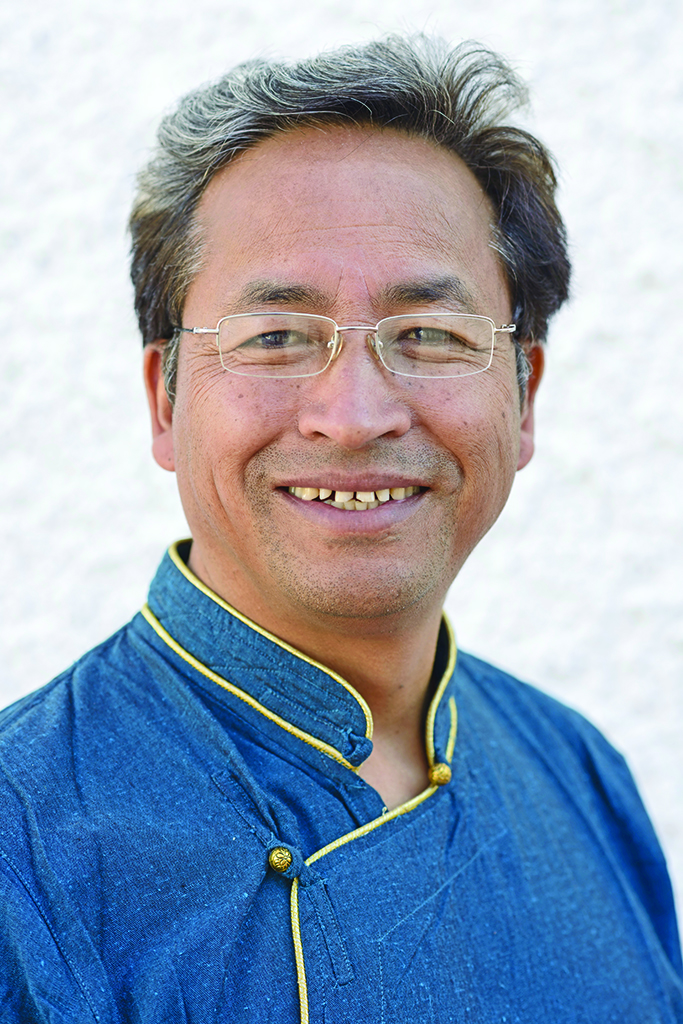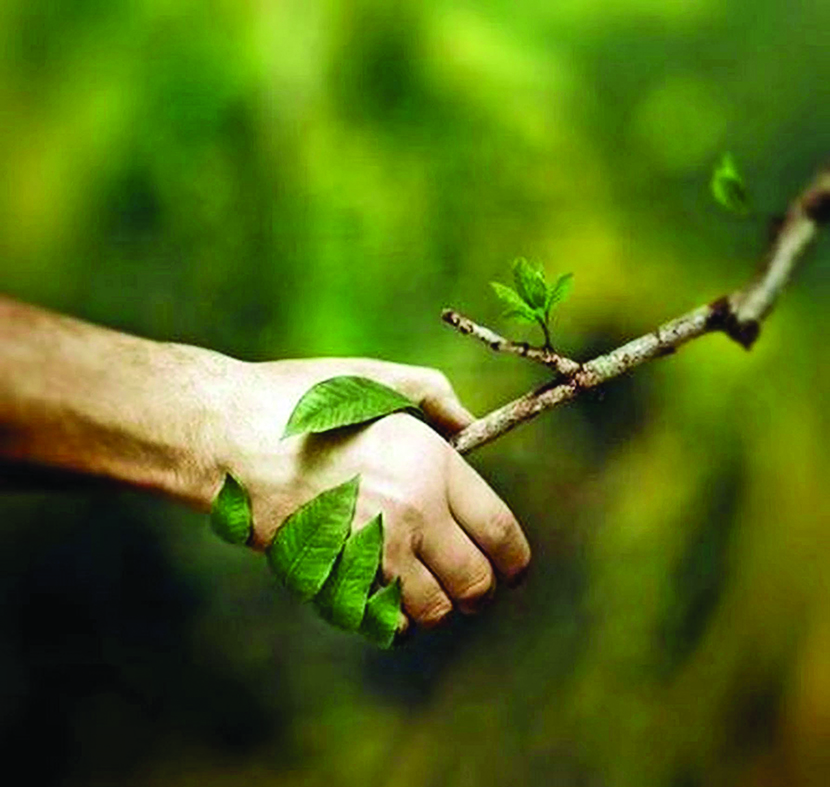I’d like to begin with a Native American quote by the Chief Seattle, “The Earth does not belong to Man, Man belongs to the Earth. All things are connected like the blood that unites us all. Man didn’t not weave the web of life, he is merely a strand in it. Whatever he does to the web, he does to himself.” Man shares a highly interwoven relationship with the environment. Being social animals, relationships are the key quotient to our happiness – be it with friends, colleagues, family, spouses, pets, and as Parsis, our cars, bikes and food too! And just like we work towards nurturing these bonds with love, respect and responsibility, we need to cultivate our bond with the environment. As a species which has dominated the earth in a short period of time with a population of seven billion and climbing, we have played a tremendous role in the disruption of the Earth’s natural systems. It is imperative that we address our role and relationship with nature.
Humans have an interesting ability to recognise how we have destroyed the earth and then look everywhere for solutions to restore it. Our relationship has been one of imbalance, over-use and abuse. In earlier times, every culture whether Native American, Egyptian, Indian and the Far East were incredibly in-tune with their surroundings, worshipping Nature for her life giving properties and actively participating in protecting it. With society evolving, advancements in technology, populations growing, more and more resources were required to fuel the expansion. The Industrial Revolution caused permanent damage. Today there is a stark separation between people and nature. We are obsessed with convenience and comfort providing, efficient lifestyles at the cost of the environment.
As Proud Zoroastrians we should know that Zoroastrianism has its roots set firmly in ecology and concern for the environment. Thousands of years ago before the first natural habitat came into form, it is said that our Prophet preached that the seventh creation, Mankind, must protect the other six creations – sky, water, earth, plant, animal and fire. Humans have been seen as the natural motivators or overseers of the Seven Creation. Zarthostis were taught to improve the quality of life on earth. This makes it fundamental for especially us Parsis to be conscious of the choices we make when it comes to usage of packaged products that harm the environment or the number of cars used per family causing immense pollution daily, or the casual wastage and littering of plastic that affects the oceans and the land. We need to ask ourselves if we are truly following the religion as we were fundamentally intended to?
To make a change, we need to start today and we can start small – we don’t necessarily need to bring about big changes in our lifestyle, like building Compost toilets to save water, or building homes with rammed earth building technology! The following are a few suggestions to inculcate in our daily lives so as to contribute towards repairing and respecting our bond with the environment:
- Have a bucket bath instead of using the shower to save water.
- Avoid using plastic as far as possible. The new plastic ban, though inconvenient, gives us the opportunity to use re-usable, colourful, jute/cloth bags as a sturdier and better option. Avoid buying packaged plastic drinking water, carry cool flasks or sippers. [Did you know that the average time for a plastic bottle to completely biodegrade takes 450 years to even 1000 years! Opt for alternatives, please!
- Let’s car pool! Connect with neighbours, friends and family to cover distances together – it helps save fuel and is a great way to get back to human connection.
- Reduce pollution. Once a week, cycle short distances or use public transport to reduce our carbon footprints.
- Wasted water from AirConditioners can be used to water plants or clean our cars.
- Save energy by doing a quick one-minute scan before leaving our homes to ensure all appliances are switched off.
- Once a month take a nature-walk, connect with it, feel the force around and pick up the trash you see around.
- Choose a day every year to gather friends, family and co-workers or a group of people in your neighbourhood to give back to the earth. A service project that focuses on conservation rather than consumption is a great way to build bonds with fellow humans and nature simultaneously!
Small steps like these make a big impact over time!
It is said, “Only when the last tree has died, when the last river poisoned, and the last fish has been caught, we will realise that we cannot eat money.” We, fortunately, are a generation that still has resources given by a merciful Mother… let us help her sustain, so that we can live. Let us give back her dignity that we have stripped away so that her generosity and love for each one of us, and humanity, remains.

“I remember growing up fascinated by the idea that the Parsi community like us, in Tibet and Ladakh, had the tradition of Sky Burials. As I grew up, I could understand the environmental significance of such a tradition of using least sources and not wasting or polluting the earth, and helping other beings by offering one’s own body. I learnt more about the Parsi community in my later years and had a very close friend in my Engineering college and I saw how this very tiny community had contributed so much to the nation’s progress, especially in the industrial and economical fields. Now I think, the time has come, that this small community once again leads the nation in healing nature from the hurts of an industrial revolution. It doesn’t matter how small a community is, it is the depth of the commitment that matters and like they say, it is a small community of dedicated people that has ever brought changes in the world. As the famous quote by Margret Mead reads, ‘Never doubt that a small group of thoughtful, committed, citizens can change the world. Indeed, it is the only thing that ever has!’ Therefore, I have great faith that such small, closely knit communities can also set the trends for a cleaner and greener India! Happy New Year to all!”
- પાચનતંત્રને નોર્મલ રાખવા આટલું જરૂર કરો - 13 April2024
- ઇમોશનલ એકાઉન્ટ!! - 13 April2024
- ડબ્લયુઝેડએએસ ગ્લોબલ ફોકલોર સાથે મહિલા દિવસની ઉજવણી કરે છે - 13 April2024
